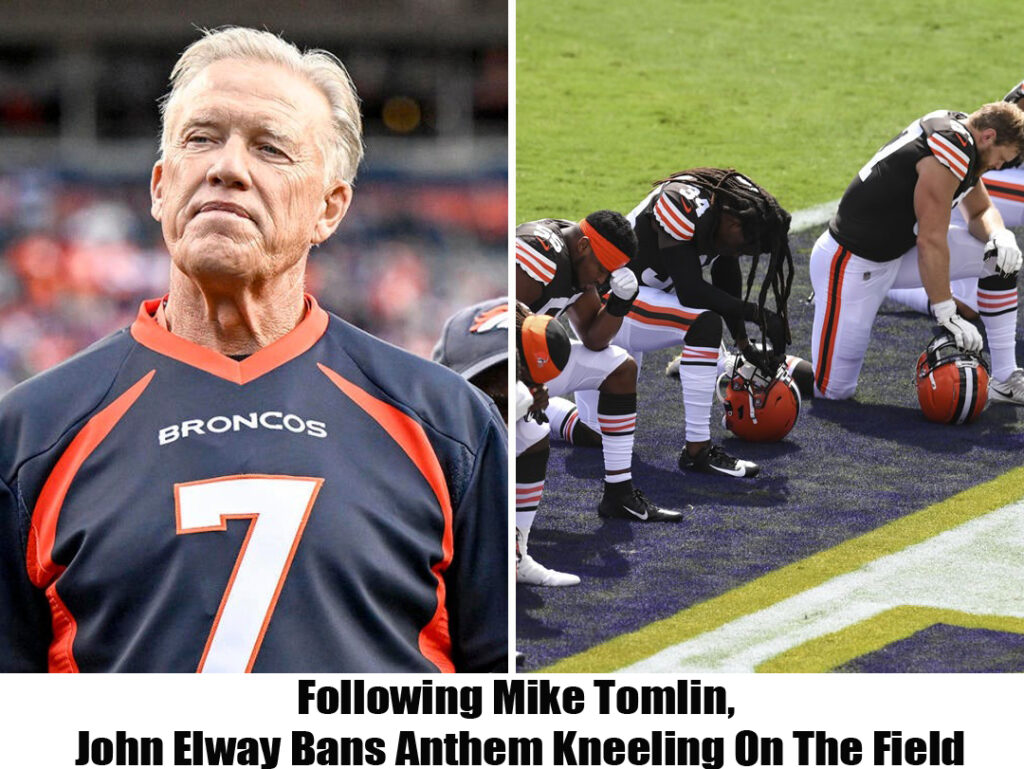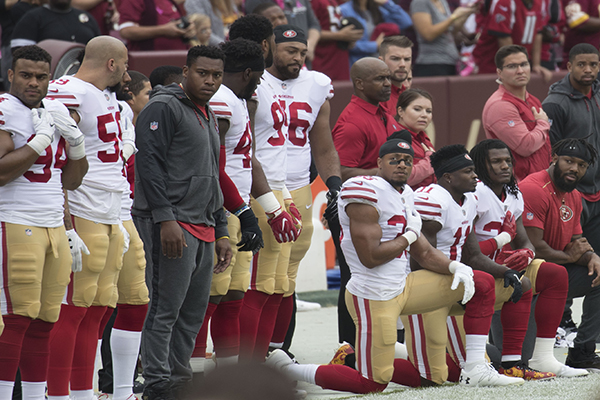
Following Mike Tomlin, John Elway Bans Anthem Kneeling On The Field
/cdn.vox-cdn.com/uploads/chorus_asset/file/9457079/853837576.jpg)
Denver Broncos executive John Elway’s recent declaration, echoing the controversies surrounding anthem kneeling in the NFL, has sparked considerable debate and speculation within the league. His firm statement, “Kneel on my field, and you’re fired on the spot,” mirrors the sentiment expressed earlier by Pittsburgh Steelers coach Mike Tomlin, further polarizing opinions across the football community.
Elway’s address to the media exhibited his characteristic composure as he explained, “We respect our players and their right to express themselves, but when it comes to the national anthem, there are other platforms and moments to communicate their sentiments.” This assertion underscores his belief in separating political expression from the game itself, emphasizing the significance of unity during the anthem.
In essence, Elway’s stance aims to maintain the sanctity of the sport while acknowledging players’ rights to express themselves outside of game time. His decision, though contentious, seeks to strike a delicate balance between individual freedoms and collective unity.
However, dissent within the Broncos’ organization highlights the complexity of the issue. An anonymous player voiced concerns about the fine line between personal convictions and team directives, reflecting the internal tensions that arise when individual beliefs clash with organizational policies.
/cdn.vox-cdn.com/uploads/chorus_image/image/69897731/1208649653.0.jpg)
The ripple effect of Elway’s statement extends beyond the Broncos, raising questions about how other teams will respond. Will they adopt similar hardline stances against anthem kneeling, or will they opt for a more nuanced approach that respects both player autonomy and team unity?
The reactions from other NFL figures provide insight into the diverse perspectives within the league. While some, like Kansas City Chiefs’ coach Andy Reid, advocate for each team to make decisions based on their unique circumstances, others, like New England Patriots’ Bill Belichick, prefer to keep discussions about team policies succinct.
Moreover, the response from the Broncos’ fan base mirrors the broader divide within the NFL community. While some support Elway’s decision as a necessary safeguard against politicization of the game, others see it as an infringement on players’ rights to peaceful protest.
As the anthem kneeling debate continues to evolve, with roots tracing back to Colin Kaepernick’s initial protest, the NFL finds itself at a crossroads. Will teams establish clear-cut policies to address anthem kneeling, or will the league intervene with a standardized directive that applies to all teams?
Elway’s alignment with Tomlin on this issue has elevated the stakes, thrusting the NFL into a pivotal moment of introspection and decision-making. As the league grapples with these complex issues, stakeholders—from fans to players to executives—remain keenly observant, recognizing that the outcome will not only shape the future of football but also influence broader societal conversations surrounding freedom of expression and unity.



